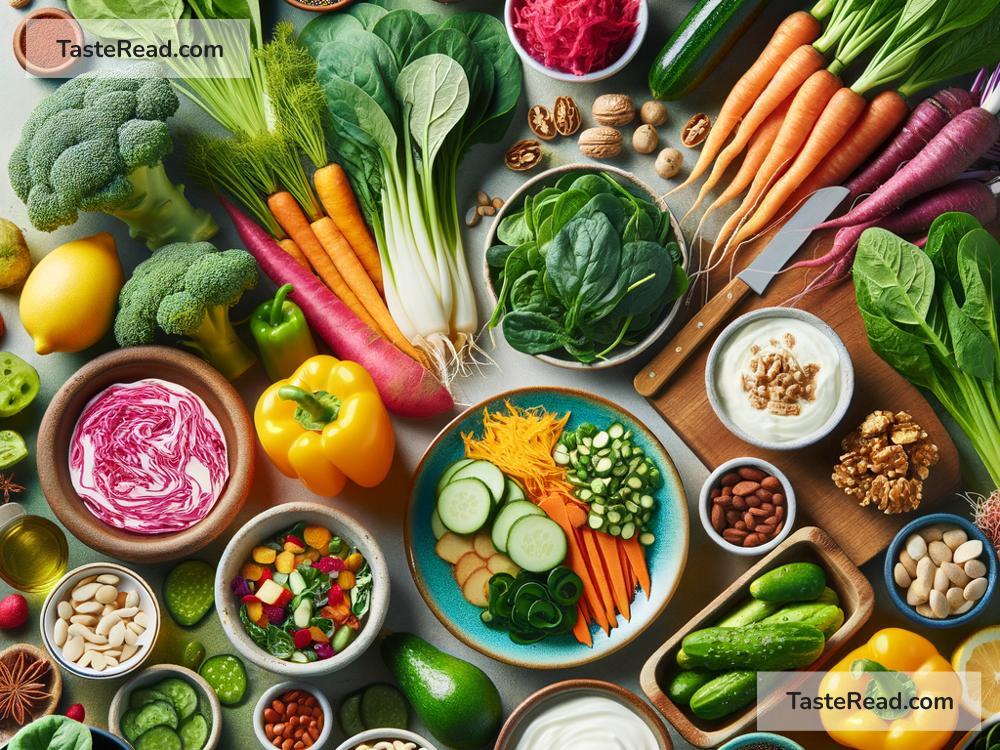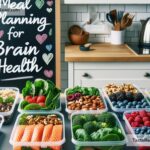How to Plan Meals for Optimal Digestive Health
Do you ever feel bloated, tired, or uncomfortable after a meal? That might be your digestive system telling you it’s time to make some changes. Good digestion is key to overall health. When your gut is happy, your body can absorb nutrients better, produce energy, and even support your immune system. One simple way to boost your digestive health is by planning meals carefully. Let’s dive into how you can make smarter food choices for a healthier gut—without the complicated science talk.
Why Is Digestive Health Important?
Your digestive system is like a hardworking factory. It breaks down the food you eat, absorbs the nutrients your body needs, and gets rid of waste. If your digestion isn’t working smoothly, it can lead to issues like bloating, constipation, diarrhea, or cramps. Over time, poor digestion can even affect your skin, energy levels, and mental health.
Planning meals that support your digestion can prevent these problems and help you feel great every day. Plus, good digestion can improve your mood—thanks to the “gut-brain connection.” Your gut and brain actually communicate, with your gut often referred to as your “second brain.” When your gut is healthy, your mind feels clearer and calmer.
Step 1: Eat Your Fiber
Fiber is your gut’s best friend. It acts like a broom, sweeping out waste and keeping everything moving. You’ll find fiber in fruits, vegetables, whole grains, nuts, and seeds.
The key is to aim for a variety. Each type of fiber provides different benefits. For example:
– Soluble fiber (found in oats, beans, and apples) helps soften stool and slow digestion, which is great for avoiding diarrhea.
– Insoluble fiber (found in whole wheat, brown rice, and leafy greens) speeds things up, helping to prevent constipation.
Try to fill half your plate with fruits and veggies at every meal and include whole grains like quinoa or brown rice.
Step 2: Hydration Is Key
Water helps your digestive system work smoothly. Without enough water, fiber can’t do its job properly, and your gut can get sluggish. Make it a habit to drink throughout the day—not just at mealtimes. Aim for at least 8 glasses of water daily, and more if you exercise or live in a hot climate.
If you’re not big on plain water, try herbal teas or infusing water with lemon, cucumber, or mint. Avoid sugary beverages like soda, which can irritate your gut and cause bloating.
Step 3: Choose Probiotic-Rich Foods
Probiotics are friendly bacteria that live in your gut. They help keep your digestion balanced and can even prevent problems like bloating or constipation. Adding probiotic-rich foods to your meals is an easy way to support your gut health.
Here are some top picks for probiotics:
– Yogurt (just make sure it says “live active cultures” on the label)
– Kefir (a drinkable yogurt)
– Miso soup
– Sauerkraut (fermented cabbage)
– Kimchi (a spicy Korean dish)
– Pickles (fermented ones, not the kind soaked in vinegar)
Probiotics thrive when you pair them with prebiotics—foods that feed the good bacteria in your gut. Prebiotic foods include bananas, onions, garlic, asparagus, and whole grains.
Step 4: Watch Your Meal Timing
When you eat matters as much as what you eat. Eating large meals right before bed can disrupt digestion and cause discomfort, as your gut is still working hard while you’re trying to sleep.
Try to:
– Eat smaller meals more frequently to avoid overwhelming your gut.
– Have dinner at least 2-3 hours before bedtime.
– Snack smart between meals (think nuts, yogurt, or fruit).
Remember, chewing your food slowly also plays a big role in digestion. When you take your time, you break down food better and give your gut a head start.
Step 5: Limit Foods That Cause Digestive Issues
Some foods are harder on your gut and can cause problems like bloating or gas. Keep an eye out for these:
– Fried or greasy foods: They take longer to digest and may cause discomfort.
– Processed foods: Chips, candy, and fast food often lack nutrients and fiber, making digestion harder.
– High-sugar food and drinks: These can feed harmful bacteria in your gut instead of the good bacteria.
– Alcohol: Too much alcohol can irritate your stomach lining.
– Trigger foods: Everyone’s gut is different, so watch out for foods that bother you personally (such as dairy or spicy dishes).
Step 6: Add Digestive Boosters
Some foods are known to help digestion. Stock up on these “digestive superheroes”:
– Ginger: Great for reducing nausea and aiding digestion.
– Peppermint: Helps prevent bloating and cramps.
– Fennel seeds: Known to ease gas and indigestion.
– Avocado: Rich in healthy fats that support digestion.
You can add these ingredients to dishes or enjoy them as teas or snacks.
Final Thoughts
Planning meals for optimal digestive health doesn’t need to be overwhelming. Focus on balance: eat a variety of nutrient-rich foods, stay hydrated, and give your gut the time it needs to do its job. Pay attention to your body and notice what makes you feel good or uncomfortable after eating. With a few adjustments, you can support your digestive health and feel better every day.
Remember: your gut is a powerful tool for wellness. Treat it well, and it will treat you well in return!


